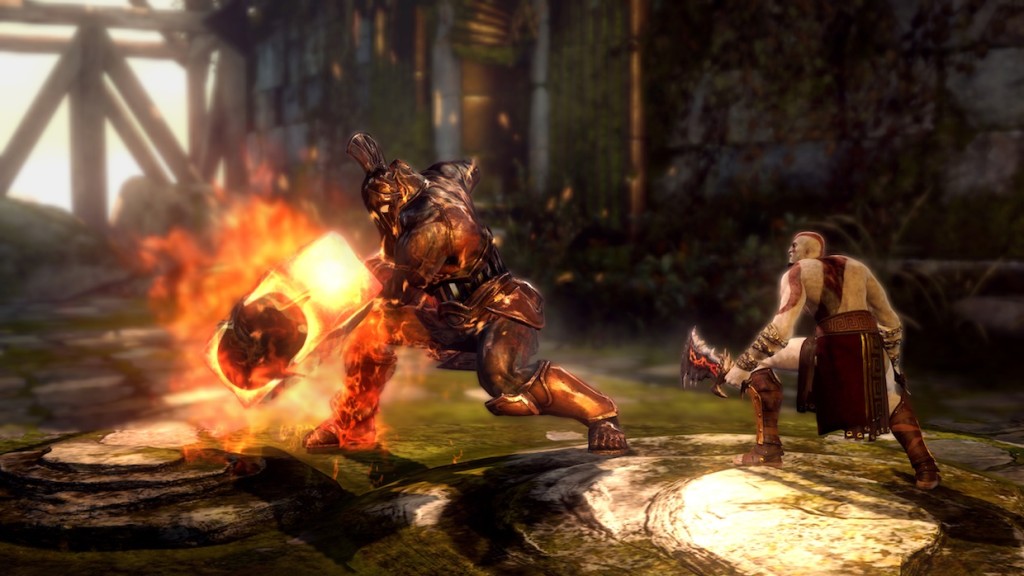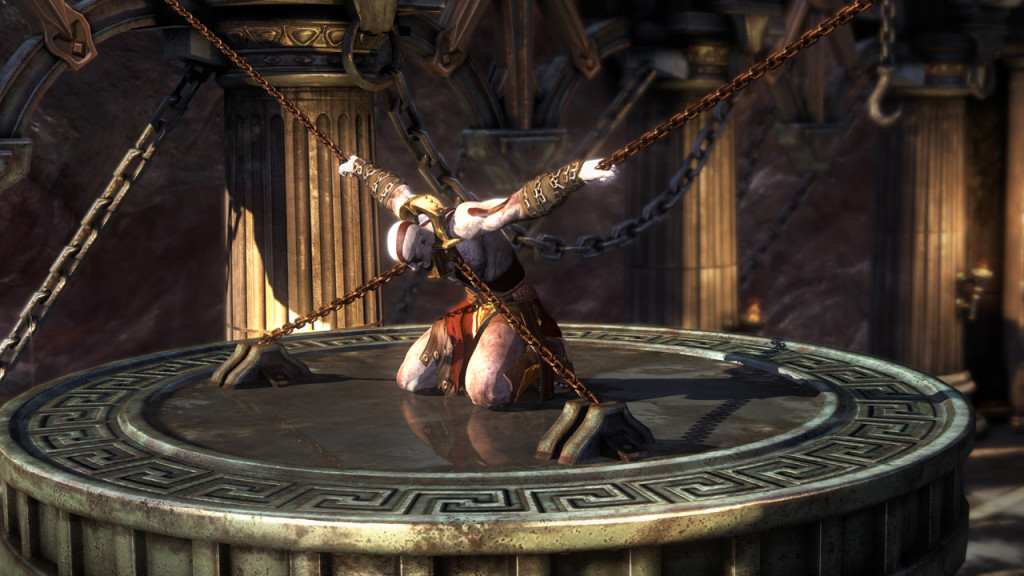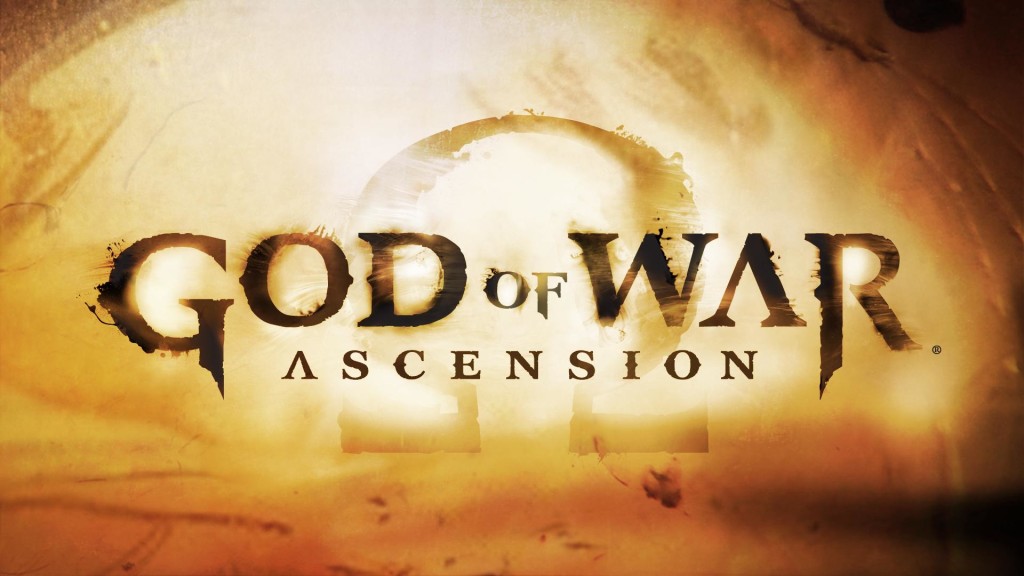Last updated on March 11, 2013
Is it me, or does it seem like reviewers all talk to each other and discuss exactly what points to cover in their review?
After three console releases — and two portable titles — the series has nearly exhausted the source material it’s depended on since 2005.
Arthur Gies, Polygon
So there’s one complaint about the exhaustion of the “source material” (i.e., Greek mythology, somewhat), but what about other publications?
A clear example of a studio going to the well with a franchise one too many times. Although highly polished and still entertaining for fans of the franchise, Ascension lacks the soul of its predecessors as it scrapes the bottom of the Greek-mythology barrel to try to deliver on a franchise that’s clearly run dry of fresh ideas.
Ray Carsillo, EGM
Somebody gave them a memo, maybe? Do these comments seem entirely similar, or am I becoming a little bit paranoid right about now?
This has been a long generation for Sony, but a quiet one for Kratos. Nathan Drake has fronted an entire trilogy on PS3 and Assassin’s Creed has settled into an annual cycle, but this is only the second God Of War game on the console, with a three-year gap between the pair. While that avoids familiarity breeding contempt, it also means developer Sony Santa Monica has had fewer chances to recognise that several elements of the God Of War template could do with modernisation.
Edge Magazine
More pretentious and smart sounding critique of the age coming from a single player campaign – still, it says the same exact thing as the other two. Just one more for the road:
God of War: Ascension is confident, executing the franchise tropes flawlessly with an amount of self-awareness not often seen in gaming. It knows it’s good–it knows it doesn’t have to try hard to be good–but it struggles to be anything more than that.
Hollander Cooper, GamesRadar
These quotes represent a few different aspects of games journalism. Firstly, they definitely talk to each other and collaborate; that’s true enough, and it seems using other game reviewers as a sounding board for your thoughts creates quite a common wavelength of thought. Still, it’s rather uncanny to see the exact same opinion spouted by every publication I’ve read (excepting the more positive reviews from the likes of Destructoid and its ilk). As for the multiplayer, either the multiplayer provides the best action/adventure combat experience yet (somehow besting Anarchy Reigns, which I completely doubt somehow) or it’s a shallow and uninteresting addition. In either case, it’s the lack of focus that, again, brings these scores to a common rating of a 7-8 on a ten point scale.
God of War remains God of War, and why should anyone expect any different? Does that mean they’re judging the game on a common scale by comparison to other entries in the series? What of other games in the same genre, such as Metal Gear Rising: Revengeance? What about Anarchy Reigns, and what does it do better than that game in its muliplayer component? I’ve read many reviews, and I’ve yet to get a sense of why God of War: Ascenscion isn’t any good. That’s the mark of confusion, at the very least. Without a tangible marker of comparison, why bother with the review score anyway? I don’t know what I am learning in these reviews that I could not pick up from general press information and/or game videos on YouTube.

Either I’m seeing the greatest feat of synchronicity ever, or somebody gave these people a memo with common, universal talking points. I do not want to believe the latter, and I want to think game journalists retain the wherewithal to form and craft a personal opinion, but I’m highly doubtful.
Granted, God of War isn’t, and never will be, my thing at all. I don’t think it’s interesting or particularly memorable, and far too violent-for-violence’s sake in my view. Yet, I think a game deserves better treatment than this. It deserves actual critical examination of its component parts, rather than a generalized dismissal of the whole game as “predictable” and/or “the same as previous God of War games”. Those statements, though most likely true in this case, still don’t help anyone unfamiliar with the series as a whole – so who’s reading this information, then? People who already know what to expect, who find themselves familiar with gaming vernacular, trends, and other elements of the culture. Even in terms of variation between reviews, most of them listed the various mechanics in an entirely perfunctory way, rather than making it clear what was improved and what was not from previous entries. I’d call this a fiasco, any way you slice it. Reviews don’t review; they just throw words onto a web browser and expect you to figure it out. If they’re trying to bridge a gap between a general audience and the experts, they are not succeeding; they are failing miserably at it. Brevity does not function if the content does not relate to the game in any way. That appears the case here.
How many times have you heard the common sentiment “I don’t listen to reviews”? I heard this more than my fair share. Let’s say it is true. Then why do these companies continue to provide them? Couldn’t a game developer simply place all that information on their website, allowing the consumer to make a proper and weighted decision on the purchase based on their likes/dislikes? Sure, why not? I do this all the time. My game purchases work on a few levels, notably by comparing the price of said product with the enjoyment I’ll receive from it. Or, in my case, whether that game produces a good article or not (I still have yet to write on some of these Wii games I got for one dollar, but I will!). I read reviews more to see what other opinions exist on the product. I imagine many of us also read them for that same purpose – whether for discovery, reinforcing our own opinions from an exterior authority, or simply for laughs (Game Revolution usually does that for me, but anyway…). The middle reason strikes me as the only reason why games journalism outfits exist from an intellectual standpoint.
But they exist in a capitalist market, so they do not live on philosophical stance alone, I’m sure. In other words, the whole enterprise itself doesn’t make any sense in our current environment. There was a need before the Internet, but that time already passed. I can find free information, provided by nice folks from around the globe (or me), that matches or betters the quality of these publications (and you better believe that Theology Gaming’s better, don’t you know). I could find the opinions of experts on a particular genre and even find real comparisons to similar games because of that knowledge base. That information, to me, seems rather helpful.
Our modern publications do not do that. Would I go so far to call it a games journalism racket, a process of manipulation? Well, it sure looks like it! Heck, I don’t even think it matters whether the consensus gives a positive or negative opinion – either way, they determine what games we talk about, which ones we call “AAA” titles, why we should care about THIS indie rather than THAT indie, etc. It’s also difficult to have a conversation when literally EVERYONE agrees on the good/bad portions of a game – they just affix a different score to the end.

Disconcerting? Definitely. Troubling? Surely. I am of the opinion that, if something is important, it is also something worth creating a conflict over. We need to create stuff that matters, lasting opinions, perhaps even controversial ones – not in some meaningless quest for hits, but to say something important about video games.
The goal of Theology Gaming come from an idea – that video games presented a goldmine for theological formation – and I have tried to stay on that path. Whether or not you like me, you at least know my opinion. I would rather discuss and create a dialogue than throw down my own immutable opinion. It’s about learning, discovery, and finding out things you did not know before. Video games “review” sites, the big ones, stifle opinion by normalizing opinion – this is where we end up when the world ends, I suppose. We lack critical tools and critical opinions, quite honestly; we’re willing and liable to accept anything that crosses our path. We do not develop culture, but destroy it without a solid basis for determining good or bad…at least in our own private cases. A Christian of conservative Protestant leanings usually strives for objectivity, but that doesn’t need to become the case; video games, all in all, remain a medium of entertainment (meaning as a subset of it).
When it comes to Christianity, however, we must find ourselves in a strong, unassailable position. We must make our positions clear. Video games and whatever other entertainment consumed become a function of employing those beliefs in the correct and righteous way. In that sense does the Bible give us clear indicators, and then leave us to implement them on our own. It is the very definition of independence, to the degree in which God allows our own freedom. If we could not think for ourselves, we certainly could not accept the Gospel message. Perhaps this is why I find the modern journalist enterprise so concerning: for such a vacuous and ineffectual enterprise, it sure ropes many people into its grasp without a second thought. A follower of Christ cannot follow any other; so should we not follow the call of the manipulative reviewer of today, either. We are even given the specific rules for such confrontations in 1 Peter 3:
8 To sum up, all of you be harmonious, sympathetic, brotherly, kindhearted, and humble in spirit; 9 not returning evil for evil or insult for insult, but giving a blessing instead; for you were called for the very purpose that you might inherit a blessing. 10 For,
“The one who desires life, to love and see good days,
Must keep his tongue from evil and his lips from speaking deceit.
11 “He must turn away from evil and do good;
He must seek peace and pursue it.
12 “For the eyes of the Lord are toward the righteous,
And His ears attend to their prayer,
But the face of the Lord is against those who do evil.”13 Who is there to harm you if you prove zealous for what is good? 14 But even if you should suffer for the sake of righteousness, you are blessed. And do not fear their intimidation, and do not be troubled, 15 but sanctify Christ as Lord in your hearts, always being ready to make a defense to everyone who asks you to give an account for the hope that is in you, yet with gentleness and reverence; 16 and keep a good conscience so that in the thing in which you are slandered, those who revile your good behavior in Christ will be put to shame.
Firm, but gentle, Incisive, but not mocking. Straightforward and clear, but not confused. Consistent, not hypocritical. That is how we should be. But that is exactly what we are not. We need to change that.

